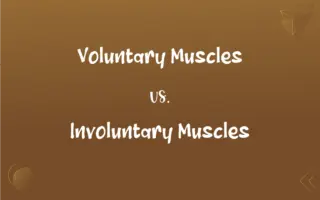Will vs. Trust: What's the Difference?
Edited by Aimie Carlson || By Harlon Moss || Updated on October 27, 2023
A will is a legal document detailing asset distribution after death; a trust is an arrangement where a trustee holds assets for beneficiaries.

Key Differences
A will is a legal document that allows a person, the testator, to specify how their assets should be distributed upon their death. A trust, on the other hand, is a legal entity in which assets are held by a trustee for the benefit of certain individuals or entities, known as beneficiaries.
While a will becomes effective only after the death of the individual who wrote it, a trust can become operative during the lifetime of the person who created it, known as the settlor or grantor. Trusts can be designed to operate both during the grantor's lifetime and after.
The process of probate is often associated with wills, wherein a court verifies the authenticity of a will and oversees the distribution of assets. Trusts, particularly living trusts, can help bypass the probate process, allowing for a more immediate and private transfer of assets.
Wills allow individuals to name guardians for minor children, make charitable bequests, and express wishes regarding funeral or burial arrangements. Trusts primarily focus on the distribution and management of assets, and can provide detailed instructions on how and when assets are distributed to beneficiaries.
Both wills and trusts offer distinct advantages and can be used in conjunction to form a comprehensive estate plan. While wills are generally easier and less expensive to create, trusts offer more control over asset distribution and can provide certain tax advantages.
ADVERTISEMENT
Comparison Chart
Definition
Legal document detailing post-death asset distribution.
Arrangement where a trustee holds assets for beneficiaries.
Effective Time
Becomes effective after death.
Can be effective during lifetime or after death.
Probate Process
Usually requires probate.
Can bypass probate.
Focus
Asset distribution, guardianship, funeral wishes.
Asset management, distribution instructions.
Complexity and Cost
Generally simpler and less costly.
More complex with potential tax benefits.
ADVERTISEMENT
Will and Trust Definitions
Will
Determination or intent to do something.
Through sheer will, he overcame his fears.
Trust
To have faith or confidence in someone or something.
You can trust him to keep a secret.
Will
A disposition or inclination to act in a certain way.
He did it of his own will, without any persuasion.
Trust
Confidence in someone's truthfulness or reliability.
I have complete trust in my best friend.
Will
A legal document specifying post-death wishes.
Her will clearly stated who should inherit her house.
Trust
A legal entity where assets are held for beneficiaries.
She set up a trust for her children's education.
Will
The mental power to choose or decide.
Free will allows us to make our own choices.
Trust
A responsibility or duty entrusted to someone.
The trust of leading the team was given to her.
Will
To desire or wish for something to happen.
I will for you to succeed in your endeavors.
Trust
An arrangement for financial credit or extension.
They bought the furniture on trust from the store.
Will
The mental faculty by which one deliberately chooses or decides upon a course of action
Championed freedom of will against a doctrine of predetermination.
Trust
Firm belief in the integrity, ability, or character of a person or thing; confidence or reliance
Trying to gain our clients' trust.
Taking it on trust that our friend is telling the truth.
FAQs
Can I name a guardian for my child in a trust?
No, guardianship designations are typically made in wills.
When does a will become effective?
A will becomes effective after the death of the person who wrote it.
Can trusts be used for tax planning?
Yes, certain trusts can provide tax advantages.
What is a testamentary trust?
It's a trust created by a will and becomes effective upon the will's probate.
How can I ensure my pet is cared for after my death?
You can establish a pet trust or include provisions in your will.
Can a trust operate during someone's lifetime?
Yes, certain trusts, like living trusts, operate during the grantor's lifetime.
Is it more expensive to set up a trust than a will?
Generally, trusts are more complex and can be more costly than wills.
Can I change my will or trust?
Wills can be amended using codicils; trusts can be amended or revoked based on their type.
Who manages the assets in a trust?
A trustee manages and distributes assets in a trust.
What's the main advantage of a trust over a will?
Trusts can bypass probate, offer more control over asset distribution, and provide tax benefits.
Can I include funeral wishes in a trust?
While possible, funeral wishes are typically included in wills.
Is a trust valid in all states?
While trust laws vary, a properly drafted trust is generally valid across states.
Do trusts expire?
Trusts can expire based on specified terms or conditions.
Do all wills go through probate?
Most wills go through probate, but some assets might bypass the process.
Can I have both a will and a trust?
Yes, many people use both to form a comprehensive estate plan.
Does a trust provide asset protection?
Certain trusts can offer asset protection from creditors.
Who oversees asset distribution in a will?
An executor, named in the will, oversees the process.
How is a will revoked?
A will can be revoked by writing a new one or physically destroying the document.
What happens if I die without a will?
Assets are distributed based on state intestacy laws.
Are wills public records?
Once probated, wills become public records. Trusts remain private.
About Author
Written by
Harlon MossHarlon is a seasoned quality moderator and accomplished content writer for Difference Wiki. An alumnus of the prestigious University of California, he earned his degree in Computer Science. Leveraging his academic background, Harlon brings a meticulous and informed perspective to his work, ensuring content accuracy and excellence.
Edited by
Aimie CarlsonAimie Carlson, holding a master's degree in English literature, is a fervent English language enthusiast. She lends her writing talents to Difference Wiki, a prominent website that specializes in comparisons, offering readers insightful analyses that both captivate and inform.































































